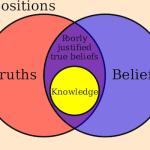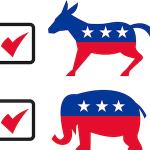“Scientists at the University of Natural Resources and Life Sciences in Vienna found that bacteria living inside a cow’s rumen – one of the four compartments of its stomach – can digest certain plastics, including those used to make
truth
Well, this is certainly interesting. An article from CNBC that I posted on my personal Facebook page has been flagged by Facebook fact-checkers as containing "partly false information."
When I was an undergraduate student, I majored in microbiology and minored in chemistry. And just for kicks, I nearly minored in philosophy, falling just one class short1. But these philosophy classes stuck with me for a lifetime.
Steven Pinker is an excellent writer and thinker. Perhaps his greatest contribution to our national dialogue is his insistence, backed up by considerable research, that life keeps getting better and better.
It is increasingly difficult to have a conversation about any topic that is even remotely political. We appear to have entered a world in which there is no longer a common set of agreed upon facts.
Geopolitical analyst George Friedman wrote in his book The Next 100 Years that cultures go through three phases: barbarism, c
In our postmodern society -- where truth is relative, "fake news" is prevalent, and scientific facts are just an opinion -- it shouldn't come as a surprise that modern medicine is facing a backlash.
I met a friend at a coffee shop in Seattle today. We covered a lot of ground in the short time we had together -- politics, the state of our nation, the state of our city.










